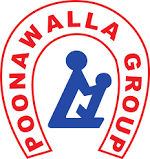Request Demo
Last update 08 May 2025
Measles, Mumps and Rubella Vaccine (Live)(Serum Institute of India Pvt Ltd.)
Last update 08 May 2025
Overview
Basic Info
Drug Type Combination vaccine, Live attenuated vaccine, Prophylactic vaccine |
Synonyms Tresivac |
Target- |
Action stimulants |
Mechanism Immunostimulants |
Therapeutic Areas |
Inactive Indication- |
Originator Organization |
Active Organization |
Inactive Organization- |
License Organization- |
Drug Highest PhaseApproved |
First Approval Date- |
Regulation- |
Login to view timeline
Related
3
Clinical Trials associated with Measles, Mumps and Rubella Vaccine (Live)(Serum Institute of India Pvt Ltd.)PACTR202006883882711
Effectiveness of Measles, Mumps and Rubella Vaccine in Health Care Professionals for COVID-19
Start Date01 Jul 2020 |
Sponsor / Collaborator |
ISRCTN72521372
Supporting informed parental decision-making for MMR (the combined measles, mumps and rubella vaccine): Evaluation of a web-based decision aid
Start Date01 Sep 2008 |
Sponsor / Collaborator |
ISRCTN61378987
Measles, mumps and rubella vaccine given to 14 month old children, administered subcutaneously versus intramuscularly
Start Date01 Feb 1998 |
Sponsor / Collaborator- |
100 Clinical Results associated with Measles, Mumps and Rubella Vaccine (Live)(Serum Institute of India Pvt Ltd.)
Login to view more data
100 Translational Medicine associated with Measles, Mumps and Rubella Vaccine (Live)(Serum Institute of India Pvt Ltd.)
Login to view more data
100 Patents (Medical) associated with Measles, Mumps and Rubella Vaccine (Live)(Serum Institute of India Pvt Ltd.)
Login to view more data
5
Literatures (Medical) associated with Measles, Mumps and Rubella Vaccine (Live)(Serum Institute of India Pvt Ltd.)01 Jan 2023·Dermatology
Intralesional Measles, Mumps, Rubella Vaccine versus Tuberculin Purified Protein Derivative Injections in the Treatment of Palmoplantar and Periungual Warts: A Double-Blind Randomized Controlled Trial
Article
Author: Pomsoong, Cherrin ; Namasondhi, Amornrut ; Thadanipon, Kunlawat ; Anuntrangsee, Tanaporn ; Kositkuljorn, Chaninan ; Rutnin, Suthinee
01 Apr 2018·Saudi Medical JournalQ4 · MEDICINE
How often do children receive their vaccinations late, and why?
Q4 · MEDICINE
Article
Author: Ahmad Y. Algarni ; Ahmed A. Alamri ; Maysaa A. Banjari ; Turki S. Alahmadi ; Yahya S. Alshardi ; Meral H. Abualjadayel
07 Sep 2012·MMWR. Morbidity and mortality weekly reportQ1 · MEDICINE
National, state, and local area vaccination coverage among children aged 19-35 months--United States, 2011.
Q1 · MEDICINE
Article
1
News (Medical) associated with Measles, Mumps and Rubella Vaccine (Live)(Serum Institute of India Pvt Ltd.)19 Jan 2015
January 20, 2015
By
Renee Morad
, BioSpace.com Breaking News Staff
Disneyland is a place where dreams come true. However, this past December, the Anaheim, Calif., theme park was the epicenter of a measles outbreak that has since reached at least 51 people in four states and one in Mexico.
While the devastation of those affected, including two infants too young for immunizations, casts a shadow on the anti-vaccination movement, it also shines light on more economical ways to get people, particularly in developing countries, protected.
Between Dec. 15 and Dec. 20, 2014, an unvaccinated California woman in her 20s apparently visited Disneyland or the adjacent California Adventure Park while she unknowingly had measles. Since then, there have been 45 cases in California, three in Utah, two in Washington state, one Colorado, and one in Mexico—of a 22-month-old girl.
All of the cases involved people who visited Disneyland or were infected by people who traveled to Disneyland during that timeframe in December. Health officials said the outbreak has become the worst in California in 15 years, in part because it occurred at a major travel destination that draws people from all over the world.
“The recent outbreak of measles in Disneyland is a good example of why it’s important to continue to vaccinate, even if over time the incidence of disease has been significantly reduced. In order for vaccines to be most effective, an estimated 85 percent to 95 percent of the population must be vaccinated,” said
Deb Wambold
, spokesperson for
Merck Vaccines
. “Decreasing vaccination rates may contribute to outbreaks of diseases for which vaccines have been developed. For this reason, it’s very important for people to continue receiving recommended vaccinations.”
Why Measles Is So Concerning
In the U.S., measles infections have skyrocketed. There were 644 cases from 27 states reported last year, the highest number since 2000, according to the
Centers for Disease Control and Prevention (CDC)
.
The severity of measles rests on how highly contagious the virus is and how dangerous its complications are. Measles, spread through coughing and sneezing, can live up to two hours on a surface or in an airspace, and if one person has it, 90 percent of the people close to that person who are not immune will also become infected, according to the
CDC
. Complications of measles include pneumonia, brain damage or deafness. The virus can take up to 12 days to appear.
“There is currently nothing unusual about this outbreak,” said
Jason McDonald
, spokesperson for the
CDC
.
The Disneyland cases come months after another outbreak that involved
travelers returning from the Philippines
.
The Risks Associated with the Anti-Vaccination Movement
The latest measles outbreak demonstrates the harmful consequences that stem from the rising trend of parents opting not to vaccinate their children, due to fears, of which there has been no scientific link, that the MMR vaccine (against measles, mumps and rubella) can increase the chances of developing autism, a febrile seizure or other reactions.
Last year in California alone, parents turned in more than 13,000 “personal beliefs exemptions” notifying the state that their children would be opting out of recommended vaccines.
The MMR vaccine has proven to be 99 percent effective. The vaccine is sold by
Merck
as
M-M-R II
,
GlaxoSmithKline Biologicals
as
Priorix
,
Serum Institute of India
as
Tresivac
and
Sanofi Pasteur
as
Trimovax
and is generally administered to children around the age of one year, with a second dose before starting school.
According to a
report
published by the
World Health Organization
, the global vaccine market increased from $5 billion in 2000 to nearly $24 billion in 2013. In the third quarter of 2014,
Merck
, the industry leader for measles immunization,
reported
combined sales of measles-related vaccines
ProQuad
,
M-M-R II
and
Varivax
reaching $421 million, which was flat compared to third quarter 2013.
A
12-year study
of two measles-containing vaccines, published this month in
Pediatrics
, revealed that seven main adverse outcomes are unlikely after either vaccine.
The study, conducted by the
Kaiser Permanente Vaccine Study Center
, included children aged 12 to 23 months who received
MMRV
(measles-mumps-rubella-varicella) or
MMR + V
vaccines. Both groups showed no increased risk of seven main neurological, blood or immune system disorders.
“This study did not identify any new safety concerns comparing
MMRV
with
MMR +V
or after the
MMRV
or
MMR + V
vaccine. In fact, there were few or zero events for several outcomes following vaccination,” said lead author
Dr. Nicola P. Klein
, co-director of the
Vaccine Study Center
.
“This level of safety monitoring for vaccines can give the public confidence that vaccine surveillance is ongoing and that if a safety problem existed, it would be detected,”
Dr. Klein
said.
Advancements in Measles Vaccines
While the recent measles outbreak emphasizes the importance of being vaccinated, industry leaders working on advancements in immunizations, particularly geared for developing countries, say the importance of publicizing vaccination is increasingly pertinent.
Robert Sievers
, a professor in the
University of Colorado Boulder
’s Department of Chemistry and Biochemistry, has been working on a new measles vaccine, in dry powder form, that has shown promising results in
early clinical trials
. The powder requires no painful needle pricks, but a puff of air that is inhaled.
The dry powder vaccine doesn’t require as much refrigeration or control of temperature as other vaccines, eliminates the need for needles, contains lower risk of contamination and provides lower cost for delivery.
“It’s a startling fact that more people continue to be killed by measles than the disease of the day, which is
Ebola
,” added
Sievers
. “Around 500 people die each day around the world due to complications from the measles.”
Sievers
said the dry powder vaccine targets countries like India, where measles remains a leading cause of death for young children. Particularly in a tropical climate, a dry powder vaccine can be safer and more economical than injectable vaccines.
“A 10-dose vial of dried powder that you add water to for injection is then stored in the refrigerator and needs to be used by the next day. Otherwise it can develop bacterial contamination, like staph,”
Sievers
said. “There’s also hope that the dry powder concept will be applied to vaccines for other viruses like
influenza
or Ebola in the future.”
BioSpace Temperature Poll
What Are Your Predictions for the Price Bidding War?
The market has been buzzing about an escalating price war between large payers like
Express Scripts
and Big Pharma. Multiple deals last week showed
Gilead
forming
exclusive pacts
and smaller companies like
Kite Pharma
starting talks early. What do you think will be the effect on prices? BioSpace wants your opinion!
var _polldaddy = [] || _polldaddy; _polldaddy.push( { type: "iframe", auto: "1", domain: "biospace.polldaddy.com/s/", id: "what-are-your-predictions-for-price-bidding-war", placeholder: "pd_1421711966" } ); (function(d,c,j){if(!document.getElementById(j)){var pd=d.createElement(c),s;pd.id=j;pd.src=(' '==document.location.protocol)?' ':' ';s=document.getElementsByTagName(c)[0];s.parentNode.insertBefore(pd,s);}}(document,'script','pd-embed'));
Vaccine
100 Deals associated with Measles, Mumps and Rubella Vaccine (Live)(Serum Institute of India Pvt Ltd.)
Login to view more data
R&D Status
10 top approved records. to view more data
Login
| Indication | Country/Location | Organization | Date |
|---|---|---|---|
| Measles | India | - | |
| Parotitis | India | - | |
| Rubella | India | - |
Login to view more data
Clinical Result
Clinical Result
Indication
Phase
Evaluation
View All Results
| Study | Phase | Population | Analyzed Enrollment | Group | Results | Evaluation | Publication Date |
|---|
No Data | |||||||
Login to view more data
Translational Medicine
Boost your research with our translational medicine data.
login
or

Deal
Boost your decision using our deal data.
login
or

Core Patent
Boost your research with our Core Patent data.
login
or

Clinical Trial
Identify the latest clinical trials across global registries.
login
or

Approval
Accelerate your research with the latest regulatory approval information.
login
or

Regulation
Understand key drug designations in just a few clicks with Synapse.
login
or

AI Agents Built for Biopharma Breakthroughs
Accelerate discovery. Empower decisions. Transform outcomes.
Get started for free today!
Accelerate Strategic R&D decision making with Synapse, PatSnap’s AI-powered Connected Innovation Intelligence Platform Built for Life Sciences Professionals.
Start your data trial now!
Synapse data is also accessible to external entities via APIs or data packages. Empower better decisions with the latest in pharmaceutical intelligence.
Bio
Bio Sequences Search & Analysis
Sign up for free
Chemical
Chemical Structures Search & Analysis
Sign up for free


